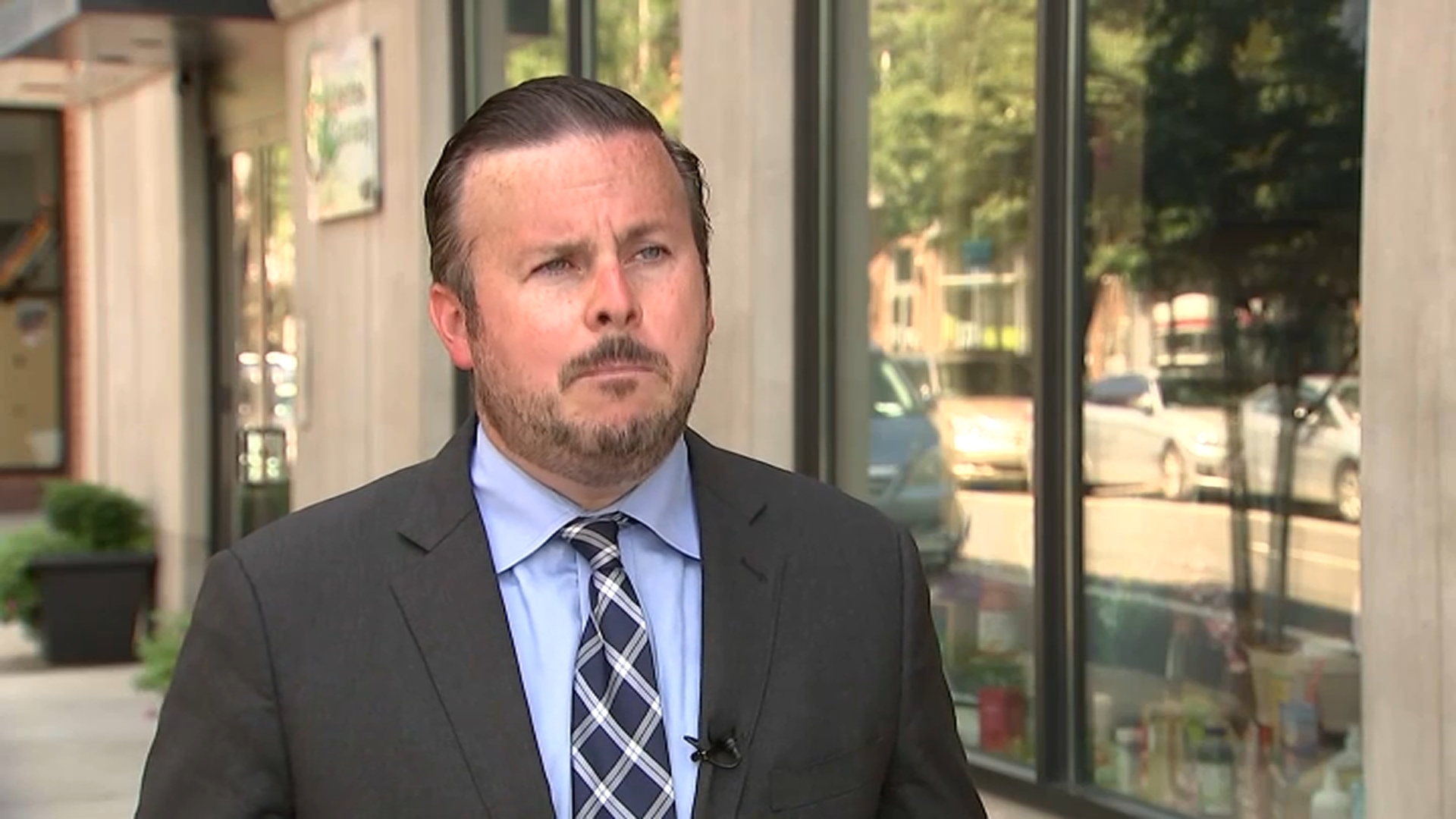In 30 years of publishing as a professor at Princeton Theological Seminary, C. Clifton Black has never received such an outpouring of reader support as he did when he wrote a lament for his dog Pinky, who had died at age 16.
Pinky was "a member of our family" and brought it a "holy joie de vivre," Black wrote in a 2011 essay in The Christian Century magazine titled, "Unexpected grief: Elegy for a border collie."
Pinky taught his family about selfless dedication and focusing on the moment, rather than "an unfetchable past and an uncertain future," Black wrote.
And, the theology professor added, he hopes to see Pinky in heaven: If the biblical Psalms call for all creatures to sing praise, "Who's to say that God does not accept the bark of a border collie as praise?"
In such responses to the loss of a faithful pet, Black is far from alone.
Pet bereavement, a topic many people in the past were reluctant to admit for fear of cold-hearted dismissals, is now out in the open, widely shared and catered to by an array of grief counselors, funeral homes and other service providers.
Few animals will receive the full police honors (that were) conferred on Rocco — the Pittsburgh police dog who was stabbed to death in the line of duty last (month) — whose funeral (was last Friday) at the Soldiers & Sailors Memorial Hall and Museum in Oakland.
Local
Breaking news and the stories that matter to your neighborhood.
But pet memorials, pet bereavement and speculation about animals in heaven have become increasingly common.
The Beinhauer Family Funeral Homes, for example, opened the Peaceful Pastures pet cemetery in the late 1990s in Canonsburg, and it has cremated or buried thousands of pets ranging from dogs and cats to rabbits, guinea pigs, alpacas, horses, turtles, iguanas and a llama.
"We treat any pet losses as if it was the loss of any family member," said director of operations Scott Beinhauer.
And the Good Grief Center for Bereavement Support on Murray Avenue in Squirrel Hill offers peer support, reading materials and other help for people grieving losses of pets as well as humans.
"Years ago, people didn't even want to share the depth of their loss because people didn't understand or they would say, 'It's only a dog,' " said Karen Litzinger, a career counselor who formerly conducted pet memorials, counseled the bereaved and created a CD, "Heal Your Heart," with music and meditations for those in grief. Scorn for pet bereavement is less frequent today, she said, "and more people feel the bond of a family with animals."
More than three-fifths of Americans own pets — mostly dogs and cats — and virtually all owners consider their pets to be family, according to a 2011 Harris Poll. More than half of pet owners allow their animals to sleep in their beds, according to Harris. With such familiarity comes an explosion of products and services that continues literally to the grave.
And these trends reflect revolutionary shifts in American lifestyles, family structures and spirituality. Average (human) household population has shrunken by nearly a third since 1940, and the percentage of single-person and nonfamily households has risen, according to U.S. Census figures.
"Western society is at a paradoxical juncture: At a time that we've never been more technologically interconnected, many say they've never felt more alone," Black said in an email interview. "Dogs don't use Twitter; they need food, exercise, and affection. Parakeets tweet, but not in 140-character shorthand. They sing. Isn't that better for our souls?"
And when a pet dies, the grief is deep — and so are the spiritual questions.
"Let's be clear — the vast majority of time it's not on the level of a family member, but it is real and it is bereavement," said the Rev. Jeff Lukacs, pastor of Mary S. Brown-Ames United Methodist Church in Squirrel Hill.
Lukacs was a former police officer, and his dog, like Rocco, was a trained police dog who went to work with him and was always prepared to defend him with his life.
When his dog was terminally ill, Rev. Lukacs recalled his long, sad drive to the veterinarian for him to be euthanized, holding the dog in his arms when it died. The grief that followed was intense.
When children and adult parishioners ask about a dog's eternal fate, he said, "It's a tough one because there's not a lot to pull from Scripture." But he tells them that whatever they will need for heaven to be a place of comfort and joy, "it will be there."
Of Americans who believe in heaven — which is most of them — nearly half believe their pets will go there, according to a 2001 poll by ABC News and the Beliefnet website.
"It sounds deceptively simple and maybe a little bit cute in some ways, but it's an important topic," said John Ferre, a University of Louisville communications professor who has surveyed more than two dozen books on pet heaven, with poignant titles such as "Cold Noses at the Pearly Gates."
"It gets at the idea of: Is death permanent? And if that's the case, what does life mean?" Ferre said. For many children, their first experience with death is with a pet, and one man told Ferre he abandoned his faith after his pastor refused to assure him his pet was in heaven.
People base their beliefs on pet heaven to some extent by the time-honored practice of searching the Bible for evidence -- but many also cite extrasensory experiences, Ferre said, such as feeling their late cat's presence in the room or hearing the ghostly jingling of a collar.
Affirmations of pet heaven range from traditionalists to the spiritual-but-not-religious. Rick Warren, the Southern Baptist megachurch pastor from California, told an interviewer he "can't imagine God not allowing my dog into heaven."
"Rainbow Bridge" — a widely circulated prose poem with no particular theological anchoring — describes how pets go to a heavenly paradise after they die, and happiness becomes complete when they are eventually reunited with their owners.
"What I found fascinating was the willingness to mix history and the Bible with paranormal experience," Ferre said. "When you see the mix, then something interesting is happening in faith in America."
That something is a mix-and-match spirituality reflected in a 2009 survey by the Pew Research Center, in which more than a fifth of self-professed Christians believed in things they likely never learned in Sunday School, such as astrology, reincarnation and spiritual energy in mountains or trees.
The Bible doesn't directly address animal immortality, and some in Judaism and Christianity say humans have a uniquely eternal spiritual element that animals don't share. But proponents of pets in heaven cite promises of God restoring creation in a glorious future, such as the prophet Isaiah's vision of wolves and lambs living peaceably together.
The Hebrew prophet Nathan told a parable about a poor family that loved its pet lamb as dearly as any modern American family loves its dog or cat. The prophet then describes the heartless slaughter of the lamb by a wealthy neighbor as a crime as heinous as King David's having a man killed so he could take his wife.
Speculating about animal souls is just part of a wider focus on religious values, animal welfare and environmentalism, said Charles Camosy, a professor of theology at Fordham University, a Catholic school in New York.
"The focus on animals and theology is really hot right now," he said.
In a recent book, "For Love of Animals," Camosy opposed eating meat from factory farms because of the inhumane conditions there.
He said some older adults resist such concerns, but not students. "They're trying to figure out, if this is bad, what is OK? What about free-range chicken, or fish?" he said.
Even some religious traditions that don't believe in a heaven still hold beliefs about animals and the afterlife. Hinduism, for example, holds that all beings have souls that move from one body to another after death, according to Pandit Suresh Joshi, a priest at the Hindu Jain Temple of Pittsburgh.
While most people find comfort in the thought of pet heaven, Litzinger said she had counseled clients who had a humanist perspective on life.
"They were kind of offended when people got into the heaven piece," she said. What she tells people is, "Your animal will always live in your heart. That will last your lifetime."



